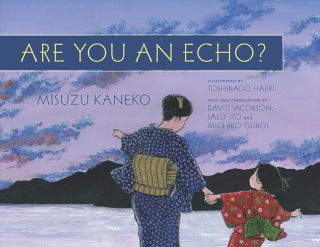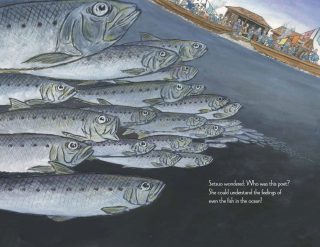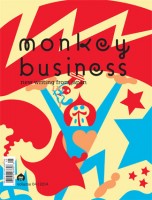 Author: Misuzu Kaneko, David Jacobson
Author: Misuzu Kaneko, David Jacobson
Illustrator: Toshikado Hajiri
Translator: Sally Ito and Michiko Tsuboi
Publisher: Chin Music Press
ISBN: 9781634059626
Released: September 2016
Misuzu Kaneko, who in the 1920s was a well-known author of poetry for children, almost faded into obscurity after her early death at the age of twenty-six only to have her work rediscovered in 1982. Since then her poetry has been met with great admiration and acclaim. Despite having her work translated into nearly a dozen different languages, Kaneko is relatively unknown in English. Are You an Echo?: The Lost Poetry of Misuzu Kaneko, published by Chin Music Press in 2016, is a beautifully illustrated and crafted children’s book created by a multi-national team with members hailing from Japan, the United States, and Canada in an effort to bring Kaneko’s work to a larger audience. Before reading Are You an Echo? I was unaware of both Kaneko and her poetry. After reading the volume I can only hope that more of her work will be translated in the future–the book is a marvelous introduction.
Are You an Echo? consists of two main parts. The first is a biographical narrative written by David Jacobson, a journalist and editorial consultant at Chin Music Press, which outlines both the life of Kaneko and the history of her work and its rediscovery by Setsuo Yazaki, another poet who also provides the foreword to the book. Although Are You an Echo? is meant for a young audience, Jacobson is honest and touches upon some of the sadder aspects of Kaneko’s story such as her unhappy marriage, unfortunate illness, and eventual decision to end her own life. However, the topics are handled with gentleness and sensitivity. Several of Kaneko’s poems are incorporated directly into the narrative while the second part of Are You an Echo? is specifically devoted to a selection of her work. The poems are presented in both their original Japanese and in an English translation jointly composed by Michiko Tsuboi and the poet Sally Ito.
 The format is somewhat unusual for a children’s book, but I feel the decision to include a biography along with a selection of Kaneko’s work in a single volume is ultimately a good one. Are You an Echo? not only introduces Kaneko’s poetry, it also places it within a greater context. Jacobson’ s narrative is easily accessible and the story of how Kaneko and her work have come to positively influence the lives of so many people is a wonderful one. Hajiri’s illustrations are likewise captivating. The artwork is colorful without being garish and has a gentle softness to it that complements both Jacobson’s text and Kaneko’s poetry. Hajiri depicts scenes from Kaneko’s life and imagination and provides a lovely visual accompaniment to and interpretation of her work.
The format is somewhat unusual for a children’s book, but I feel the decision to include a biography along with a selection of Kaneko’s work in a single volume is ultimately a good one. Are You an Echo? not only introduces Kaneko’s poetry, it also places it within a greater context. Jacobson’ s narrative is easily accessible and the story of how Kaneko and her work have come to positively influence the lives of so many people is a wonderful one. Hajiri’s illustrations are likewise captivating. The artwork is colorful without being garish and has a gentle softness to it that complements both Jacobson’s text and Kaneko’s poetry. Hajiri depicts scenes from Kaneko’s life and imagination and provides a lovely visual accompaniment to and interpretation of her work.
Twenty-five of Kaneko’s surviving five-hundred-twelve poems are included in Are You an Echo?. The translators have taken obvious care in rendering Kaneko’s work into English. Kaneko wrote in a feminine form of Japanese which doesn’t have a direct equivalent in English, but Ito and Tsuboi have successfully crafted a translation that reads well and captures the feelings and intentions of the originals. The poems collected in Are You an Echo? are utterly delightful. One of the things that I found most striking about Are You an Echo? is the tremendous empathy that Kaneko exhibits through her work. Though a touch of melancholy can frequently be found, the poems embody the natural curiosity, wonder, and earnestness of the children for whom she was writing. Kaneko’s poetry is immensely charming and deeply compassionate; I am so incredibly glad to have encountered it. While the book may be intended and suited for younger readers, there is still plenty for adults to enjoy and appreciate about it, too. Are You an Echo? is a treasure.
Thank you to Chin Music Press for providing a copy of Are You an Echo? for review.
